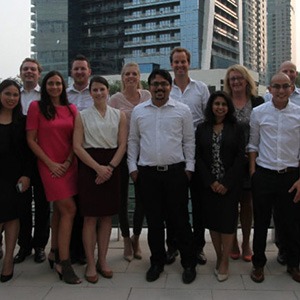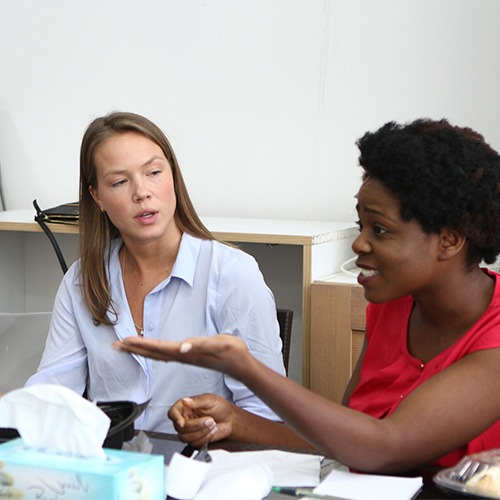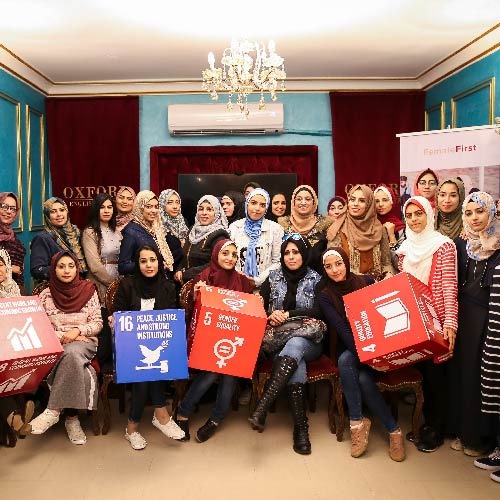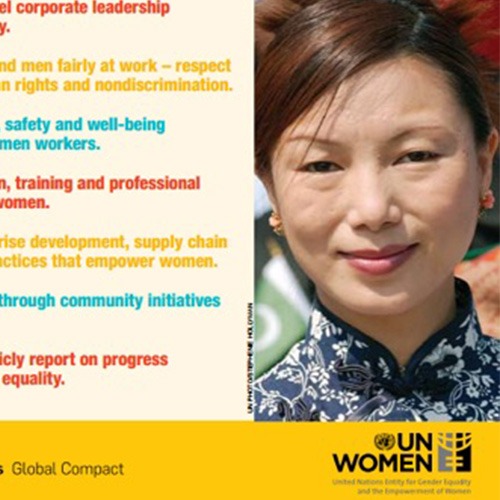The CTG Women Engineers Who Are Helping To Rebuild Gaza
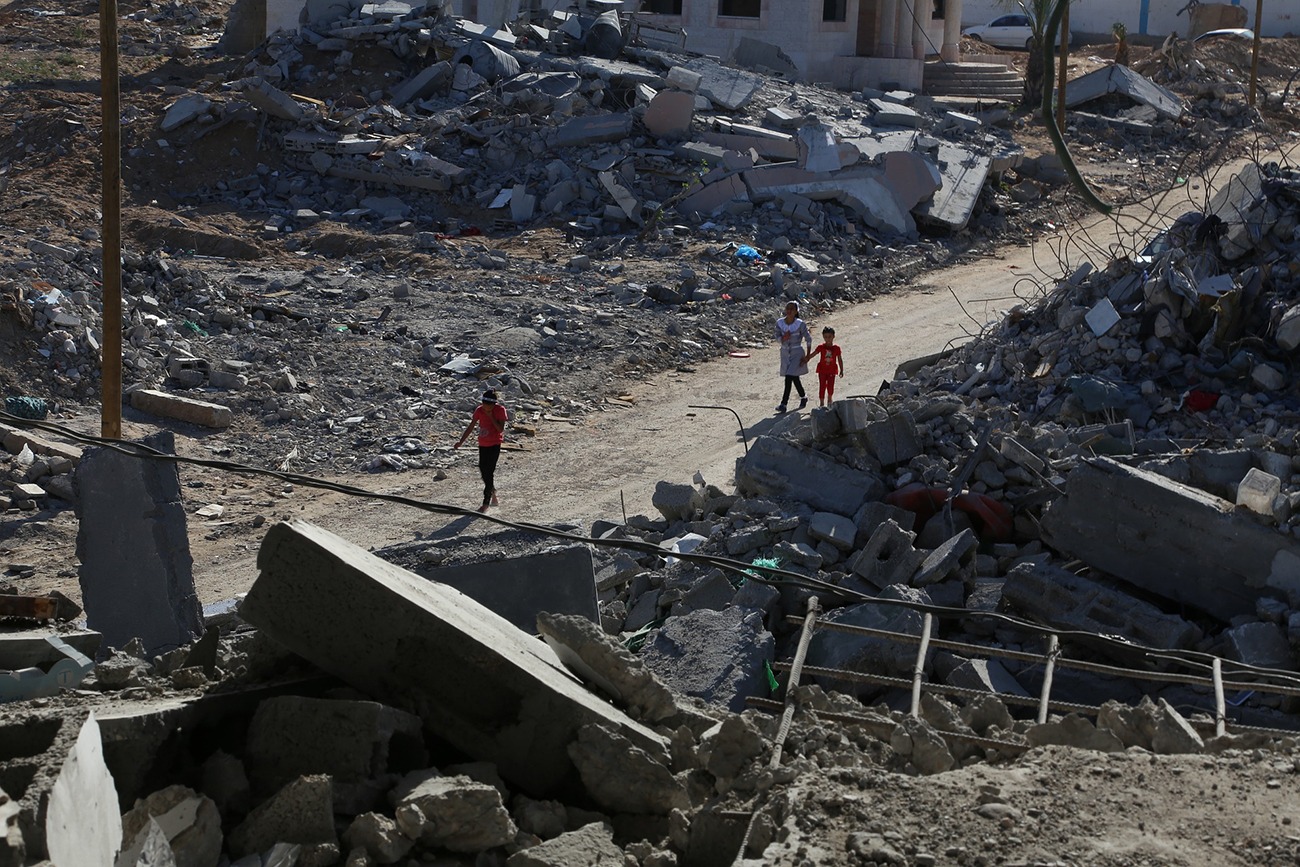
The building sites of Gaza is perhaps not the first place you’d think of finding a female civil engineer. “Being a female engineer isn’t fun and games,” says Eman Abusaada, a determined Palestinian engineer working in the Gaza Strip. “The conservative setting here and the lack of jobs makes it even harder for women to pursue engineering jobs. It puts a lot of pressure on us to break into the industry and be on par with our male counterparts.”
Eman is one of several female civil engineers working for CTG on material monitoring and redevelopment projects in this fragile state. A remarkable achievement considering that only 14% of the paid workforce in Gaza is female.
At the start of her career, Eman was selected for the US State Department programme TechWomen, an exchange and development programme where she was given the opportunity to learn about the most advanced technologies in the engineering field. It confirmed to her that her chosen career path was one she is passionate about.

In an area with a high unemployment rate, the fact that women like Eman are pursuing careers in science, technology, engineering and mathematics (STEM), typically male-dominated, is commendable.
What is the state of women’s representation in engineering around the world?
In the second half of 2017, UNESCO published its Science Report: Towards 2030, which gathered data about the representation of women in science-related fields in different countries. What the report helps to show is how the number of female graduates in the fields of engineering and computer science differs in developed and developing regions. This in turn indicates how gender balanced each region is, and what more can be done in each country to better achieve gender balance.
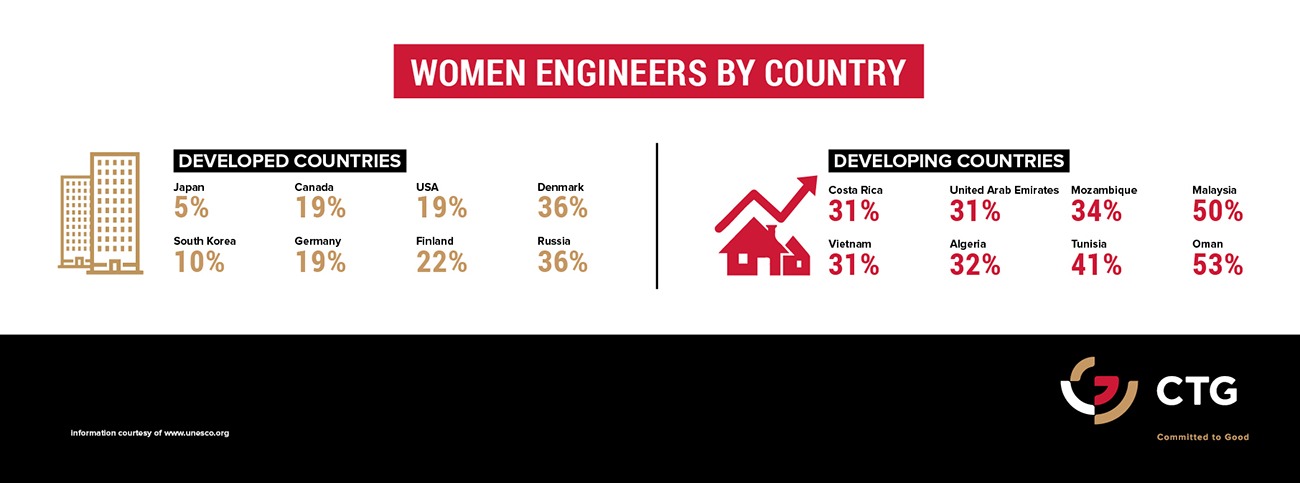
The state of the developed world:
Women currently account for 53% of bachelor and master’s graduates, and 43% of PhDs worldwide, but surprisingly still lag behind men when it comes to qualifying with engineering degrees. In the developed world, Japan and South Korea’s female engineering graduates make up 5% and 10% of engineers respectively. The numbers read 19% for Canada, Germany and the United States, and 22% for Finland.
The state of the developing world:
Challenges present opportunities, and the good news is the women in engineering in developing countries have seized the chance to make a difference in these fields of study. UNESCO’s report finds that in the UAE, 31% of engineers are women, and in Malaysia and Oman, the figures stand at 50% and 53% respectively. In the UAE, the government has put measures into place to boost the economy, given the low percentage of Emirati workers.
However, there is a huge discrepancy between female engineering graduates and those who eventually find work.
Barriers to gainful employment in regions such as Afghanistan and surrounding Arab countries, which are male-dominated societies, present huge challenges to women who are looking to work as engineers.
One area that stands out is the Gaza Strip. Unemployment currently stands at 42%, mainly due to regional conflict, and opportunities for men and women are not equal – women do not participate in the economy and it’s been reported that 93% of female heads of households have not participated in relief efforts.

However, CTG believes in empowering women, and we make it our mission to help woman find better opportunities in areas where such opportunities might not exist.
“I love my job and I’m proud to be a woman engineer,” says Amal El Shair, an engineer working with CTG. “I was a Team Leader for damage assessment after the 50 days of hostility in Gaza in the summer of 2014. There was extensive damage to everything, so I shared in site visits and carried out technical assessments of major damage to homes. I helped a lot of people reconstruct their homes and we will continue to support the people who lived there as much as we can until the country is finally stabilised.”
“I was given an opportunity to prove myself on the construction site, which is still considered a workplace only suitable for men, where women’s roles are limited,” says Amal. “I really love Gaza – my gender shouldn’t be a barrier preventing me from contributing to redevelopment. It needs a lot to reconstruct homes, schools, health clinics and other key civilian infrastructure. Our work is very important to support those who are in dire situations.”
CTG & women’s empowerment

CTG’s #FemaleFirst initiative pledges that by 2030, 30% of all project-related roles be represented by women in the regions we operate in, including Afghanistan, Gaza, Somalia and other conflict-afflicted countries. In Yemen, we have already achieved this goal.
We believe in employing women in fields like engineering, especially in countries where women graduates exist and are looking for employment. In developing countries, there exists a shortage of skilled workers as it is, but to exclude women graduates – a rapidly growing section of the population – from the work force because of traditional male domination, means that growth and prosperity will not be possible, let alone female empowerment and gender equality. “It’s encouraging that CTG sees a unique opportunity in hiring more female engineers, and I’m impressed by the strategic plan of aiming to hire 30% women,” says Eman Abusaada.
“It’s difficult to know what will happen in Gaza,” says Salwa Nassar, another dedicated civil engineer working with CTG in Palestine – she too was selected to be part of the TechWomen programme. “We don’t know what conflict is looming or when the closure will end. Together we work day by day and try to establish a new peace for all. We need to rebuild our country and we need to be hard working in all fields, not just science and maths and engineering. We need to work hand in hand to build our country.”
Peace and development in developing countries can only be possible when they fully embrace the growing number of women who are graduating in the scientific fields of study. CTG is helping to make this a reality, and it’s time every country recognised the value of women who are ready and able to work.
